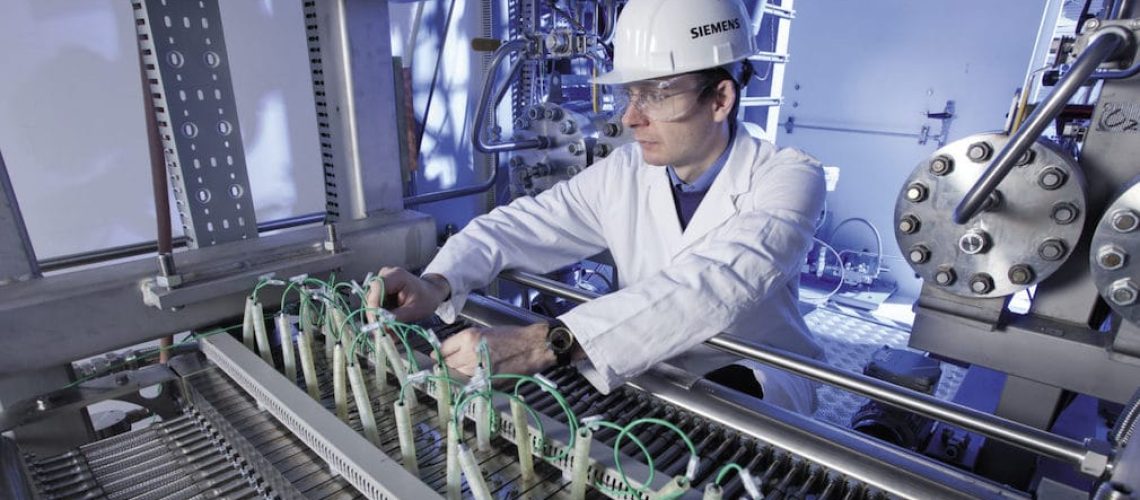Funding from the Bipartisan Infrastructure Law is intended to lower clean hydrogen and fuel cell costs and provide long-term support for hydrogen hubs.
The U.S. Department of Energy (DOE) announced that it intends to issue $750 million in funding from 2021’s Bipartisan Infrastructure Law to help reduce the cost of clean hydrogen technologies.
Produced with net-zero carbon emissions, clean hydrogen will be key in the emerging clean energy economy and will help toward achieving the President’s goal of a 100% clean electrical grid by 2035 and net-zero carbon emissions by 2050.
“Today’s announcement is yet another exciting step toward lowering the cost of and scaling-up clean hydrogen production, a versatile fuel essential to the nation’s historic transition to an equitable and secure clean energy future,” said Jennifer M. Granholm, secretary of the U.S. Department of Energy. “By investing in the cutting-edge research and development necessary to making market-ready clean hydrogen a reality, DOE is delivering on President Biden’s promise to implement an ambitious climate agenda.”
Clean hydrogen can play a vital role in reducing emissions from some of the hardest-to-decarbonize sectors of our economy, including heavy-duty transportation. Clean hydrogen can also provide a means for long-duration energy storage.
Electrolysis, the process that creates hydrogen fuel, requires large amounts of electricity. Therefore, it’s a perfect marriage for solar energy and hydrogen production. Fusion Fuel, a modular solar-to-hydrogen facility provider based in Portugal, and Electus Energy, a hydrogen fleet-fueling and power infrastructure developer, entered an exclusive joint venture agreement to construct a 75 MW green hydrogen facility in Bakersfield, California. The proposed project is a solar-to-hydrogen site that would make use of Fusion Fuel’s proprietary hydrogen electrolyzer technology, called HEVO. The company said the facility, its first in the United States, would produce up to 9,300 tons of hydrogen fuel per year to fuel heavy-duty trucks.
Clean hydrogen can also help reduce harmful air pollution and decarbonize industrial, chemical and other polluting sectors. Reducing emissions in these sectors would benefit disadvantaged communities, because they are often in the most industrialized areas and have suffered disproportionately from local air pollution in the past. The DOE’s National Clean Hydrogen Strategy and Roadmap and President Biden’s Justice40 Initiative serve as pillars driving the energy justice efforts by Hydrogen and Fuel Cell Technologies Office (HFTO) and the Hydrogen Program.
Together with the regional clean hydrogen hubs (H2Hubs), tax incentives in the President’s Inflation Reduction Act, and ongoing research, development, and demonstration in the DOE Hydrogen Program, these investments are intended to accelerate the technical advances and the scale-up needed to achieve DOE’s Hydrogen Shot goal of $1 per kilogram of clean hydrogen within a decade.
Managed by DOE’s Hydrogen and Fuel Cell Technologies Office (HFTO), projects funded through this opportunity will address underlying technical barriers to cost reduction, which will open new markets for clean hydrogen. The DOE sees this funding as a way to create more clean energy jobs, reduce greenhouse gas emissions, and strengthen America’s competitiveness in the global clean energy market.
More information about this DOE notice of intent, including potential topic areas, can be found here.



